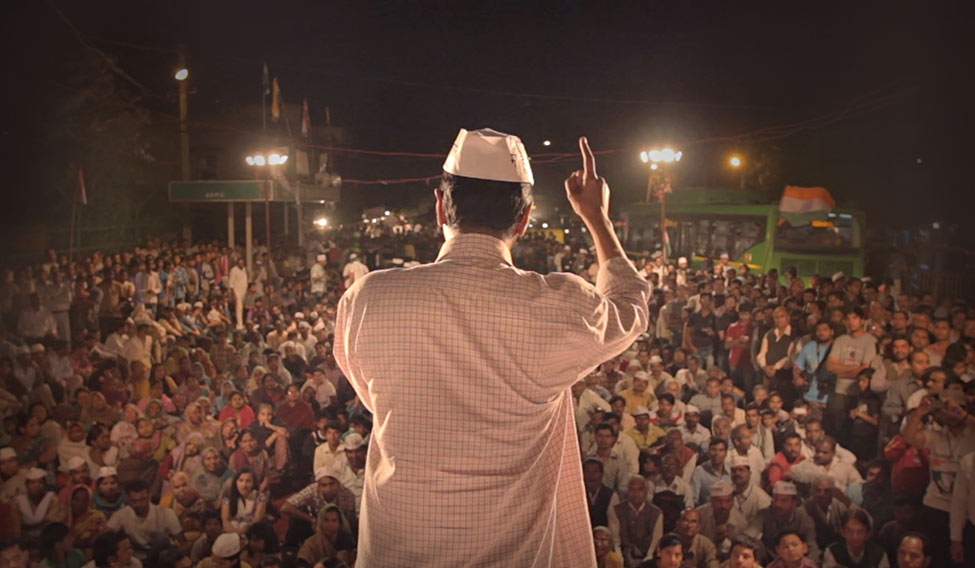Four years ago, two filmmakers, Khushboo Ranka and Vinay Shukla, decided to make a documentary on the Aam Aadmi Party to capture the behind-the-scene happenings of a movement that many believed would give birth to a revolution. But the duo didn’t have any financial backing. So, they started a crowdfunding campaign and ended up collecting six times the amount they needed for making the documentary, An Insignificant Man. It was encouraging. What was even more encouraging was the appreciation their documentary received at various international film festivals in the past one year. So, the last thing they expected was any trouble with the censor board back home. “The film doesn’t deal with anything controversial. But once we started the process, we understood how arbitrary the Central Board for Film Certification is,” says Ranka.
The board asked the filmmakers to get a no-objection certificate from Prime Minister Narendra Modi, Delhi Chief Minister Arvind Kejriwal and former Delhi chief minister Sheila Dikshit who are referred to in the film. The board also asked them to remove six references to the Congress and the BJP in the documentary, which is produced by Anand Gandhi of Ship of Theseus fame.
Currently, the filmmakers are exploring the legal options. They have been receiving support from all quarters. “Some people have suggested that we approach the Film Certificate Appellate Tribunal while some others say we should directly go to the High Court,” says Ranka. They have also been approached by the makers of Modi Ka Gaon and Sameer. In March, the board had asked the makers of Sameer to remove a line from the film. The board took an objection to the dialogue, “Ek mann ki baat kahoon? Tum character accha bana lete ho!”, because it had the phrase ‘mann ki baat’, which is the name of Modi’s radio show.
In February, the makers of Modi Ka Gaon were asked to get a no-objection certificate from Modi. The makers approached the prime minister’s office, but they got no response. Finally, the PMO sent a mail in the last week of May stating that it was the CBFC’s job to give the clearance, says co-director Tushar A. Goel, who is planning to approach the revising committee.
In April, actor-director Amol Palekar and his lawyer wife, Sandhya Gokhale, filed a writ petition in the Supreme Court against censorship. In the petition, Palekar argued that India’s censorship laws had failed to keep up with the times. There has been a history of censorship, says Shukla, especially when it comes to political films. Currently, the board is acting as a watchdog of the politicians, he says.
If this goes on, the quality of our films will suffer. “If you keep putting pressure on filmmakers, our films will become more and more candy floss with more songs and dance, the films that will have nothing to do with our society,” says Shukla.
Though our efforts to contact CBFC chief Pahlaj Nihalani went in vain, recently, in an interaction with an English tabloid, Nihalani cited the example of director Karan Johar seeking an NOC from Raveena Tandon for using her name in a film. He also talked about the makers of Jolly LLB 2, who sought an NOC from Salman Khan before making a reference to him in the film.
Shukla fears that such arbitrary rules might dissuade filmmakers from taking up challenging subjects. “We gave fours years of our lives to this film. Films are not created in a day,” he says. “It takes a lot of people, a lot of time to make these films. It’s discouraging for filmmakers like us.”







